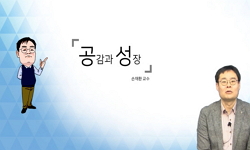본 연구에서는 fMRI 기법을 이용하여 경쟁 상황 노출 여부에 따라 개인이 타인의 상황을 이해하고 인지적 공감을 유발하는 신경학적 기제의 차이를 조사하였다. 공감은 타인에 대한 이해를 ...
http://chineseinput.net/에서 pinyin(병음)방식으로 중국어를 변환할 수 있습니다.
변환된 중국어를 복사하여 사용하시면 됩니다.
- 中文 을 입력하시려면 zhongwen을 입력하시고 space를누르시면됩니다.
- 北京 을 입력하시려면 beijing을 입력하시고 space를 누르시면 됩니다.

경쟁과 비경쟁 상황에서 공감의 신경학적 기제 = Neural Bases of Empathy in Competitive vs. non-Competitive situation
한글로보기https://www.riss.kr/link?id=A102075602
- 저자
- 발행기관
- 학술지명
- 권호사항
-
발행연도
2016
-
작성언어
Korean
- 주제어
-
등재정보
KCI등재
-
자료형태
학술저널
- 발행기관 URL
-
수록면
441-467(27쪽)
-
KCI 피인용횟수
2
- DOI식별코드
- 제공처
-
0
상세조회 -
0
다운로드
부가정보
국문 초록 (Abstract)
본 연구에서는 fMRI 기법을 이용하여 경쟁 상황 노출 여부에 따라 개인이 타인의 상황을 이해하고 인지적 공감을 유발하는 신경학적 기제의 차이를 조사하였다. 공감은 타인에 대한 이해를 바탕으로 적절한 반응을 보이는 심리적 반응이며, 인간의 생존에 있어서 적응적 요소로 알려져 있다. 연구의 목적은 Preston과 de Waal(2002)에 기초하여 거의 자동적인 반응인 공감이 타인을 이겨야 하고 본인의 수행에 따라 보상이 달라지는 경쟁 상황에서도 1) 타인이 처한 상황을 인지할 수 있는지, 2) 인지한다면 인지적 공감이 유발되는지를 확인해 보는 것이다. 대학생 21명(남:여=9:12)을 대상으로, 일상생활에서 경험할 수 있는 6가지 정서가 제시된 그림자극을 보고 ‘나’의 관점에서 유발되는 정서가 긍정정서인지 부정정서인지 평정하는 과제 수행동안 뇌 활성화를 촬영하였다. 경쟁 유무에 따라 공감과정에서 두뇌 활동의 차이를 비교하기 위해 실험보조자 1인이 경쟁자 역할을 수행하고, 수행 결과의 정확도와 반응 시간을 기준으로 피험자가 경쟁자(실험보조자)를 이길 경우 보상(돈)을 제공하는 조건으로 경쟁심을 유발하여 경쟁 조건을 조작하였다. 연구결과, 피험자들의 판단 반응시간은 비경쟁 상황보다 경쟁에 노출되었을 때 통계적으로 유의하게 빠름을 확인하였고, 경쟁 상황에서는 전대상회(ACC, BA 32), 내측전두엽(mPFC, BA 6), 측두두정연합부의 한 부분인 연상회(SMG, BA 40), 시상(thalamus), 중전두엽(middle frontal gyrus, BA 10) 등이 활성화 된 반면, 비경쟁 상황에서는 인접대상회(paracingulate, BA 32), 측두엽극(temporal pole, BA 38), 복내측전전두엽(vmPFC, BA 11), 상후두엽/쐐기소엽(superior occipital gyrus/cuneus, BA 19) 등의 영역에서 활성화가 관찰되었다. 또한 경쟁상황에서 개인의 공감 수준에 따라 두뇌 영역과의 상관을 알아보기 위해 공감에 대한 자기보고식 반응 점수를 공변량으로 이용하여 중다회귀분석을 실시한 결과, 경쟁 상황에서는 우측 연상회(rSMG, BA 40), 하전두엽(inferior frontal gyrus, BA 47/45), 내측전두엽(mPFC, BA 10/6), 시상(thalamus), 피각(putamen), 방추형회(fusiform gyrus, BA 20/21)영역과의 상관이 높은 반면, 비경쟁 상황에서는 공감 수준이 높을수록 측두두정연합부/상측두엽(temporoparietal junction/superior temporal gyrus) 영역이 높은 상관을 보였다. 이 연구의 결과를 통해 경쟁 노출 여부에 따라서 타인에 대한 공감적 인지과정에 서로 다른 두뇌영역이 사용되며, 특히 개인의 공감 수준이 높을수록 경쟁 상황에서도 타인의 상황에 대해 이해하는 인지적 공감과 관련한 두뇌 영역이 높은 상관을 보여 개인차에 따라 경쟁 지각이 다르게 반응함을 알 수 있었다.
다국어 초록 (Multilingual Abstract)
This fMRI study is aim to investigate effects of competitive environment in cognitive empathic process in human brain. Empathy is known as a crucial factor for human’s adaptive behavior in aspects of social cognition and it is almost automatic proce...
This fMRI study is aim to investigate effects of competitive environment in cognitive empathic process in human brain. Empathy is known as a crucial factor for human’s adaptive behavior in aspects of social cognition and it is almost automatic process, on the other hand competitive situation is psychologically devastated environment to win someone for getting rewards. We hypnotized that reading and understanding of other person’s mind are a specific characteristic related to survival evolutionarily, however competition would have an effect on the empathic cognitive process because of mechanisms of competition. To manipulate the competitive atmosphere, one researcher took a role of competitor against participants and they were instructed to get monetary rewards when their performance was better than a competitor. 21 participants(9 males and 12 females) performed to judge the emotional valence of the empathic task consisted of illustrated images with various situation could be experienced in real world as on 1<SUP>st</SUP> person perspective in both competitive and non-competitive condition, and did same performance with objects stimulus in control condition. In order to examine the competition effects on empathic process,, hemodynamic response were obtained during fMRI session and the imaging data were analyzed to identify brain regions where responses to each condition across the two consecutive runs. Participants’ reaction time in competitive condition was faster statistically significant than non-competitive one. Activation for competitive condition increased in the following areas: ACC, mPFC, SMG, thalamus extended caudate and Nacc, parahippocampal gyrus, and for non-competitive condition increased paracingulate gyrus, temporal pole, vmPFC, superior occipital gyrus. As a result of regression analysis using empathic scores as covariance, the rSMG, IFG, fusiform gyrus, thalamus, putamen were correlated with higher empathic levels, and TPJ were correlated with lower empathic scores. We suggest that these observations could mean competitive environment have an effect on neural base of cognitive empathic process.
참고문헌 (Reference)
1 송춘현, "초등학생의 성취목표에 따른 경쟁에 대한 평가와 자아존중감 및 정서 간 인과관계" 한국초등체육학회 18 (18): 121-133, 2012
2 배은경, "청소년의 공감능력이 자아존중감을 매개로 학교적응에 미치는 영향" 3 : 85-100, 2011
3 조영남, "집단보상 및 집단구성 방법에 따른 협동학습이 초등 수학과 학업성취에미치는 효과" 14 : 119-136, 2001
4 강유선, "중학생의 공감과 또래관계 질에서 정서표현성의 매개효과" 한국청소년정책연구원 25 (25): 4-45, 2014
5 강 준, "정서 점화 효과에 기반한 공감의 개인차 연구" 고려대학교 대학원 2013
6 고수일, "자율성, 성과-보상 연계성, 경쟁성이 내재적 동기에 미치는 영향 : 목표지향성의 매개역할" 한국경영교육학회 26 (26): 379-398, 2011
7 이병기, "이전수행, 목표설정, 경쟁불안과 자기효능감 및 수행과의 관계" 9 : 51-68, 1998
8 조은주, "아동의 의도적 통제와 공감능력이 친사회적 행동에 미치는 영향" 한국인간발달학회 21 (21): 129-147, 2014
9 권주현, "마음의 이해와 공감이 독재자 게임에 나타난 아동의 친사회적 행동에 미치는 영향" 한국심리학회 산하 한국발달심리학회 26 (26): 117-135, 2013
10 박성희, "공감학" 학지사 2004
1 송춘현, "초등학생의 성취목표에 따른 경쟁에 대한 평가와 자아존중감 및 정서 간 인과관계" 한국초등체육학회 18 (18): 121-133, 2012
2 배은경, "청소년의 공감능력이 자아존중감을 매개로 학교적응에 미치는 영향" 3 : 85-100, 2011
3 조영남, "집단보상 및 집단구성 방법에 따른 협동학습이 초등 수학과 학업성취에미치는 효과" 14 : 119-136, 2001
4 강유선, "중학생의 공감과 또래관계 질에서 정서표현성의 매개효과" 한국청소년정책연구원 25 (25): 4-45, 2014
5 강 준, "정서 점화 효과에 기반한 공감의 개인차 연구" 고려대학교 대학원 2013
6 고수일, "자율성, 성과-보상 연계성, 경쟁성이 내재적 동기에 미치는 영향 : 목표지향성의 매개역할" 한국경영교육학회 26 (26): 379-398, 2011
7 이병기, "이전수행, 목표설정, 경쟁불안과 자기효능감 및 수행과의 관계" 9 : 51-68, 1998
8 조은주, "아동의 의도적 통제와 공감능력이 친사회적 행동에 미치는 영향" 한국인간발달학회 21 (21): 129-147, 2014
9 권주현, "마음의 이해와 공감이 독재자 게임에 나타난 아동의 친사회적 행동에 미치는 영향" 한국심리학회 산하 한국발달심리학회 26 (26): 117-135, 2013
10 박성희, "공감학" 학지사 2004
11 박성희, "공감의 구성요소와 친사회적 행동의 관계연구" 34 : 143-166, 1996
12 김윤태, "골프선수들의 성취목표성향과 경쟁상태 불안, 자기효능감 및 수행결과와의 관계" 한국사회체육학회 (22) : 379-390, 2004
13 김정미, "고교생의 공감, 또래영향력, 사회적 지지와 공격성과의 관계" 한국교육학회 47 (47): 49-72, 2009
14 현지영, "‘공감의 뿌리’ 프로그램이 유아의 공감능력 향상과 공격성 감소에 미치는 효과" 한국아동교육학회 24 (24): 313-328, 2015
15 Tauer, J. M., "Winning isn't everything: Competition, achievement orientation, and intrinsic motivation" 35 : 209-238, 1999
16 Shamay-Tsoory, S. G., "Two systems for empathy: a double dissociation between emotional and cognitive empathy in inferior frontal gyrus versus ventromedial prefrontal lesions" 132 : 617-627, 2009
17 Decety, J., "The role of the right temporoparietal junction in social interaction: how low-level computational processes contribute to meta-cognition" 13 : 580-593, 2007
18 Lamm, C., "The neural substrate of human empathy: effects of perspective-taking and cognitive appraisal" 19 : 42-58, 2007
19 Decety, J., "The neural pathways, development and functions of empathy" 3 : 1-6, 2015
20 Decety, J., "The neural bases of cooperation and competition: an fMRI investigation" 23 : 744-751, 2004
21 Shamay-Tsoory, S. G., "The neural bases for empathy" 17 : 18-24, 2011
22 Dvash, J., "The envious brain:the neural basis of social comparison" 31 : 1741-1750, 2010
23 Allman, J. M., "The anterior cingulate cortex" 935 : 107-117, 2001
24 Reniers, R. L., "The QCAE: A questionnaire of cognitive and affective empathy" 93 : 84-95, 2011
25 Akitsuki, Y., "Social context and perceived agency affects empathy for pain: an event-related fMRI investigation" 47 : 722-734, 2009
26 Fliessbach, K., "Social comparison affects reward-related brain activity in the human ventral striatum" 318 : 1305-1308, 2007
27 McCormick, D. A., "Sleep and arousal: thalamocortical mechanisms" 20 : 185-215, 1997
28 Decety, J., "Shared representations between self and other: a social cognitive neuroscience view" 7 : 527-533, 2003
29 Dale, A. M., "Selective averaging of rapidly presented individual trials using fMRI" 5 : 329-340, 1997
30 Silani, G., "Right supramarginal gyrus is crucial to overcome emotional egocentricity bias in social judgments" 33 : 15466-15476, 2013
31 Wittmann, B. C., "Reward-related FMRI activation of dopaminergic midbrain is associated with enhanced hippocampus-dependent long-term memory formation" 45 : 459-467, 2005
32 Cikara, M., "Reduced self-referential neural response during intergroup competition predicts competitor harm" 96 : 36-43, 2014
33 Batson, C. D., "Perspective taking: Imagining how another feels versus imaging how you would feel" 23 : 751-758, 1997
34 Völlm, B. A., "Neuronal correlates of theory of mind and empathy: a functional magnetic resonance imaging study in a nonverbal task" 29 : 90-98, 2006
35 Lane, R. D., "Neural activation during selective attention to subjective emotional responses" 8 : 3969-3972, 1997
36 Farrer, C., "Modulating the experience of agency: a positron emission tomography study" 18 : 324-333, 2003
37 Vogeley, K., "Mind reading: neural mechanisms of theory of mind and self-perspective" 14 : 170-181, 2001
38 Lamm, C., "Meta-analytic evidence for common and distinct neural networks associated with directly experienced pain and empathy for pain" 54 : 2492-2502, 2011
39 Gusnard, D. A., "Medial prefrontal cortex and self-referential mental activity: relation to a default mode of brain function" 98 : 4259-4264, 2001
40 Nummenmaa, L., "Is emotional contagion special? An fMRI study on neural systems for affective and cognitive empathy" 43 : 571-580, 2008
41 Gallagher, H. L., "Imaging the intentional stance in a competitive game" 16 : 814-821, 2002
42 Ruby, P., "How would you feel versus how do you think she would feel? A neuroimaging study of perspective-taking with social emotions" 16 : 988-999, 2004
43 Jackson, P. L., "How do we perceive the pain of others?. A window into the neural processes involved in empathy" 24 : 771-779, 2005
44 Schnell, K., "Functional relations of empathy and mentalizing: an fMRI study on the neural basis of cognitive empathy" 54 : 1743-1754, 2011
45 Phan, K. L., "Functional neuroanatomy of emotion: a meta-analysis of emotion activation studies in PET and fMRI" 16 : 331-348, 2002
46 Moll, J., "Functional networks in emotional moral and nonmoral social judgments" 16 : 696-703, 2002
47 Gallagher, H. L., "Functional imaging of ‘theory of mind’" 7 : 77-83, 2003
48 Donaldson, D. I., "Functional Magnetic Resonance Imaging of the Brain: Methods for Neuroscience" Oxford University Press 18-19, 2001
49 Farrer, C., "Experiencing oneself vs another person as being the cause of an action:the neural correlates of the experience of agency" 15 : 596-603, 2002
50 Preston, S. D., "Empathy: Its ultimate and proximate bases" 25 : 1-20, 2002
51 Hoffman, M. L., "Empathy and Moral Development: Implications for Caring and Justice" Cambridge University Press 2011
52 Singer, T., "Empathic neural responses are modulated by the perceived fairness of others" 439 : 466-469, 2006
53 Krämer, U. M., "Emotional and cognitive aspects of empathy and their relation to social cognition—an fMRI-study" 1311 : 110-120, 2010
54 Reeve, J., "Elements of the competitive situation that affect intrinsic motivation" 22 : 24-33, 1996
55 Chan, J. C., "Effects of competition on students' self‐efficacy in vicarious learning" 78 : 95-108, 2008
56 Vuilleumier, P., "Effects of attention and emotion on face processing in the human brain: an event-related fMRI study" 30 : 829-841, 2001
57 Shamay-Tsoory, S. G., "Dissociable prefrontal networks for cognitive and affective theory of mind: a lesion study" 45 : 3054-3067, 2007
58 Frith, U., "Development and neurophysiology of mentalizing" 358 : 459-473, 2003
59 Vansteenkiste, M., "Competitively contingent rewards and intrinsic motivation: Can losers remain motivated?" 27 : 273-299, 2003
60 Halko, M. L., "Competing with peers:Mentalizing-related brain activity reflects what is at stake" 46 : 542-548, 2009
61 Lane, R. D., "Common effects of emotional valence, arousal and attention on neural activation during visual processing of pictures" 37 : 989-997, 1999
62 Talairach, J., "Co-planar stereotaxic atlas of the human brain. 3-Dimensional proportional system: an approach to cerebral imaging" Thieme Medical Publishers 1988
63 Ernst, M., "Choice selection and reward anticipation: an fMRI study" 42 : 1585-1597, 2004
64 Fink, G. R., "Cerebral representation of one’s own past: neural networks involved in autobiographical memory" 16 : 4275-4282, 1996
65 Anders, S., "Brain activity underlying emotional valence and arousal: A response‐related fMRI study" 23 : 200-209, 2004
66 Polosan, M., "An fMRI study of the social competition in healthy subjects" 77 : 401-411, 2011
67 Decety, J., "A social-neuroscience perspective on empathy" 15 : 54-58, 2006
68 Deci, E. L., "A meta-analytic review of experiments examining the effects of extrinsic rewards on intrinsic motivation" 125 : 627-, 1999
동일학술지(권/호) 다른 논문
-
- 한국인지과학회
- 김성호(Sung-Ho Kim)
- 2016
- KCI등재
-
정서가, 각성가 및 구체성 평정을 통한 한국어 정서단어 목록 개발
- 한국인지과학회
- 홍영지(Youngji Hong)
- 2016
- KCI등재
-
- 한국인지과학회
- Hye-young Kim(김혜영)
- 2016
- KCI등재
-
- 한국인지과학회
- 배성봉(Sungbong Bae)
- 2016
- KCI등재
분석정보
인용정보 인용지수 설명보기
학술지 이력
| 연월일 | 이력구분 | 이력상세 | 등재구분 |
|---|---|---|---|
| 2022 | 평가예정 | 계속평가 신청대상 (계속평가) | |
| 2021-12-01 | 평가 | 등재후보로 하락 (재인증) |  |
| 2018-01-01 | 평가 | 등재학술지 유지 (등재유지) |  |
| 2015-10-22 | 학회명변경 | 영문명 : 미등록 -> The Korean Society for Cognitive Science |  |
| 2015-01-01 | 평가 | 등재학술지 유지 (등재유지) |  |
| 2011-01-01 | 평가 | 등재학술지 유지 (등재유지) |  |
| 2009-01-01 | 평가 | 등재학술지 유지 (등재유지) |  |
| 2007-01-01 | 평가 | 등재학술지 유지 (등재유지) |  |
| 2004-01-01 | 평가 | 등재학술지 선정 (등재후보2차) |  |
| 2003-01-01 | 평가 | 등재후보 1차 PASS (등재후보1차) |  |
| 2002-01-01 | 평가 | 등재후보학술지 유지 (등재후보1차) |  |
| 2000-07-01 | 평가 | 등재후보학술지 선정 (신규평가) |  |
학술지 인용정보
| 기준연도 | WOS-KCI 통합IF(2년) | KCIF(2년) | KCIF(3년) |
|---|---|---|---|
| 2016 | 0.78 | 0.78 | 0.67 |
| KCIF(4년) | KCIF(5년) | 중심성지수(3년) | 즉시성지수 |
| 0.65 | 0.67 | 1.178 | 0.32 |




 ScienceON
ScienceON DBpia
DBpia






